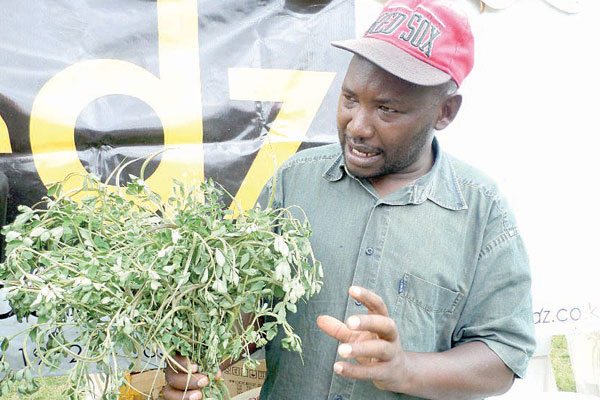Methi Farming: After post election violence in 2008, Elijah Mbugua was left with no option but to relocate from Eldoret town where he was selling second hand clothes to his rural home at Nyandarua. Here, he started growing corriander popularly known as dhania.
Though dhania was doing well his father asked him to look for fenugreek popularly known as Methi but he was ignorant. One day his father explained to him how important this plant was and how he would earn good cash from it.
“Methi is an annual plant in the family Fabaceae. It is cultivated worldwide as a semi-arid crop, and its seeds are a common ingredient in dishes but it can also be used as a herb or vegetable,” says the father of two. It is a main ingredient of curry powders and widely used in Indian curry dishes.
He recalls well that one day as he was doing his shopping in a nearby market he saw someone selling strange leaflets to a Hindu woman which had a strong scent.
Later, Mbugua would learnt that it was Methi. He went home and explained everything to his father who insisted that he should buy those seedlings and start Methi farming.
Mbugua bought one kilogramme of Methi seedlings for Sh500 and he was ready for his venture. “I made my bed in a 10 by 10 feet space in which I sowed my seeds and after three days the young tender started shooting,” he says.
From poor Mandera village to multi-millionaire businessman
The 37-year-old father said that after one month the plant was ready for harvest.
Since most people who were growing Methi were selling leaves he decided to do something different not only to increase the plant shelf life but also to try a new market of powdered Methi. To his surprise people were ready to buy his product.
He explains that Methi grows to about two feet (60cm), with yellow/white flowers and long yellow seed pods. It likes a full sun and well-drained, neutral to slightly acid soil and it doesn’t like to be transplanted.
He adds that the age of this plant determines how it should be used. “The plant grows fast and can be harvested for its leaves at various times. Young Methi seedlings (1-2 weeks of growth) are edible as micro-greens while older plants (3-6 weeks of growth) can be consumed as a leafy vegetable,” he says.
He reveals that unlike many other herbs that thrive on neglect, Methi does well in fertile soils and a lot of compost but does not require fertiliser at and plants should be five to six inches apart.
“Methi is allergic to pesticides and that is why for you to succeed in this farming you have to go organic. Also the strong scent keeps off white flies making it pest free,” he says.
Though this plant is not popular here in Kenya, Mbugua uses social media and farming exhibitions to educate the public on the importance of Methi plant, which is mainly associated with Indian families.
He adds that this plant is often used to treat coughs and sore throat and is effective in the treatment of Type 2 diabetes and can help lower blood cholesterol levels and increase circulation.
It is also often recommended as a herbal treatment for tinnitus. Though Elijah makes more than Sh50,000 per month from his two acre piece of land he is quick to advise farmers not to try this venture if they do not have enough water because Methi crops must be watered thoroughly.
He also encourages crowd farming saying that this plant loves crowd and will grow well when closely planted together. “The closeness of growth gives stability to individual plants. Methi grows well anywhere either in containers or in open plots,” he said.
Currently Elijah sells his products to hotels and also during exhibitions. A 100 gramme pack of Methi seedling goes for Sh100.
He urges farmers to venture into this farming since different cultures have embraced the use of this herb and spice and demand is high and a few farmers are producing this. He wants to expand his farm so that he can enter into the export market. Methi Farming.








